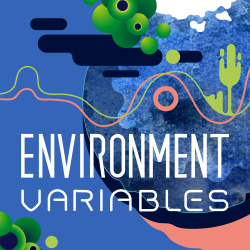Episode Summary
Environment Variables host Chris Adams is joined by Jo Lindsay Walton, a senior research fellow at the Sussex Digital Humanities Lab and co-author of the report The Cloud and the Climate: Navigating AI-Powered Futures. They delve into the intersection of climate and AI, exploring the environmental impact of AI technologies and the challenges of decarbonizing the ICT sector. Jo discusses key takeaways from the report, including the importance of understanding AI's direct and indirect impacts, the nuanced roles of big tech companies, and strategies for critically assessing claims of AI-driven sustainability. This insightful conversation highlights the need for interdisciplinary approaches and robust collaboration to navigate the complex relationship between technology and climate action.Learn more about our people:Chris Adams: LinkedIn | GitHub | WebsiteJo Lindsay Walton: LinkedIn | WebsiteFind out more about the GSF:The Green Software Foundation Website Sign up to the Green Software Foundation NewsletterNews:The Cloud and the Climate: Navigating AI-Powered Futures [01:15]Microsoft files patents for carbon capture and grid-aware workload scheduler - DCD [07:54] Potential of artificial intelligence in reducing energy and carbon emissions of commercial buildings at scale | Nature Communications [16:30]Resources:Digital Humanities Climate Coalition | Data Culture & Society [02:08]Breakdown of carbon dioxide, methane and nitrous oxide emissions by sector - Our World in Data [10:29]The climate impact of ICT: A review of estimates, trends and regulations [10:51]If you enjoyed this episode then please either:Follow, rate, and review on Apple PodcastsFollow and rate on SpotifyWatch our videos on The Green Software Foundation YouTube Channel!Connect with us on Twitter, Github and LinkedIn!TRANSCRIPT BELOW:Jo Lindsay Walton: There's this great metaphor that Arvind Narayanan and Sayash Kapoor have in their book, AI Snake Oil. They say, "imagine we just talked about vehicles. We didn't talk about bicycles or cars or buses or trains. And we tried to talk about the climate impact of vehicles." It would be very difficult to do.And that's essentially what AI di
